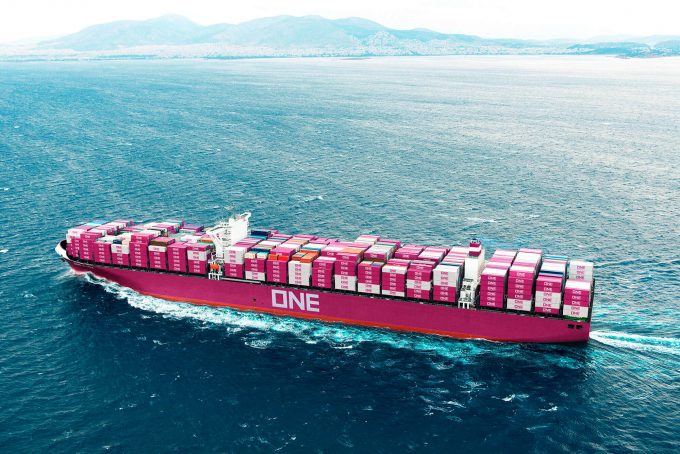K+N looks past Q1 revenue drop to improved margins from restructure
Swiss 3PL Kuehne + Nagel today said there were emerging signs of improving demand, despite ...

Cancelling the charter parties of containerships and bulkers will cost Japan’s K Line ¥560bn ($5bn).
The line has announced it will list the charge in its accounts for the year ending 31 March.
K Line said it was also a reflection of “weakening market conditions” in the dry bulk sector.
The extraordinary losses were a consequence of returning 25 ships to owners earlier than the agreed expiry period of the charter.
Moreover, K Line said it would make a further provision of ¥15bn for costs related to the “fundamental structural reforms” it is starting in the new fiscal year.
The revised forecast loss for K Line’s current fiscal year is therefore ¥100bn ($900m) – five times the previous forecast of ¥20bn.
The botched merger of the container businesses of the Japanese ‘big three’ shipping groups, K Line, MOL and NYK, into Ocean Network Express (ONE) on 1 April last year saw the promised synergy cost-savings of $1bn a year turn into a projected net loss of $600m.
Explaining the reasons for the disastrous start for the new entity, which resulted in Japanese shippers leaving the new carrier in droves, chief executive Jeremy Nixon blamed “inevitable teething challenges”.
These included not transferring sufficient staff from the legacy companies into ONE and problems with staff familiarisation with the adopted NYK booking system. Shippers complained they were unable to book cargo and could not find out the status of containers.
Unsurprisingly, ONE’s headhaul utilisation levels plunged, falling to 70% of its VSA allocation on the transpacific and just 58% of its allocated slots between Asia and Europe. Rival carriers received a windfall of bookings at the expense of the Japanese line.
The consequential plunge in revenue obliged the Japanese trio to issue profit warnings and an anticipated $600m loss for ONE’s first year of trading.
It all left ONE having to claw back its traditional business, often through rate discounts and gradually its load factors have improved. Indeed, data released by ONE for January shows headhaul utilisation on the transpacific at 89%, and an impressive 99% between Asia and Europe.
MOL and K Line are 30% stakeholders in ONE, with NYK holding 40%. It follows that, based on its equity stake, K Line would have to take a hit of $180m from the expected $600m ONE loss.
But a major benefit of the consolidation of the three carriers, involving the rationalisation of capacity, also appears to have had the unintended consequence of K Line ending up with a surplus of containerships, resulting in the charter party charges.
It is assumed that both MOL and NYK will also be taking charter party cancellations fees into their accounts.
As part of its restructuring, K Line said it would also streamline its car-carrier business.
Comment on this article
Robert Jervis
March 08, 2019 at 2:58 pmisn’t 560 billion yen about 4 billion sterling?
Alex Lennane
March 08, 2019 at 3:05 pmIndeed it is. Thanks for being eagle-eyed – we have now corrected it.